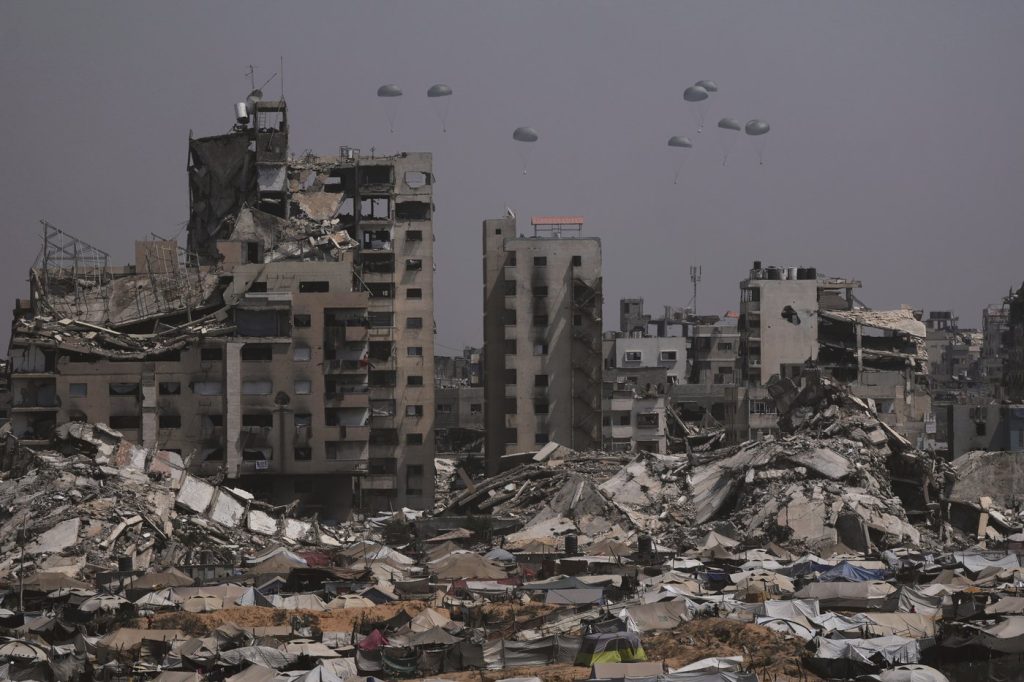OTTAWA — A Canadian senator is urging the government to increase transparency regarding its arms export policies to Israel, amid conflicting reports about the nature of military goods being exported. Senator Yuen Pau Woo expressed shock over reports of arms exports, emphasizing the humanitarian crisis and civilian casualties in Gaza, and criticized the Israeli government's actions. Ottawa maintains that it has not approved the export of lethal weapons to Israel and insists that it is blocking military goods that could be utilized in Gaza.
In March 2024, the Parliament voted on a non-binding motion to stop new arms permits for Israel, prompting the government to review approximately 30 export permits. While Ottawa has suspended these specific permits pending a review, it has continued to approve other military export permits for Israel, with 164 such permits issued in 2024, many of which are valid for extended periods. Global Affairs Canada confirmed that some of the suspended permits have since expired while others remain inactive.
Despite the government's assurances, there is ongoing debate about the definition of "non-lethal" military goods. Critics, including organizations like Project Ploughshares, argue that the term is vague, allowing for components like lenses and cameras to be used in military operations in Gaza and the West Bank. In September 2024, after the U.S. State Department approved the sale of mortar cartridges from Quebec to Israel, then-Foreign Affairs Minister Mélanie Joly reiterated that Canadian-made weapons would not be permitted to reach Gaza.
Controversy intensified when Israeli customs data reportedly indicated that Canada had exported bullets and other weapons classified under the customs code for "munitions of war." Pro-Palestinian activists claimed that 175,000 bullets were imported from Canada, with Canadian shipments also categorized under armored vehicles and their parts. In response, Minister Anita Anand dismissed the claims as flawed, explaining that these were "paintball-style projectiles" not intended for combat use, a point that Senator Woo dismissed as an oversimplification of the issue.
Advocates argue that Canadian components could be used in Israeli fighter jets and drones, with some pointing to evidence suggesting that Canadian-imported items have supported Israel's military operations in Gaza. Although the Canadian government contends it is taking steps to ensure its components are not utilized in Gaza, critics are calling for full transparency concerning arms exports.
A report released by the Canadian Muslim Public Affairs Council in August 2024 claimed that two arms permits for goods sent to Israel were issued this year, which the government disputed by stating these permits were disclosed to Parliament earlier. Furthermore, an assertion that Canadian sales to Israel amounted to $2.3 million in military equipment was explained by the government as pertaining to "electronic components for detection equipment" in Israel's Iron Dome system.
While Ottawa has stated that it has not modified its arms export policies, some believe the language used by officials has become less decisive regarding "non-lethal" arms. Senator Woo has urged Anand to cease all military trade with Israel, warning about potential legal consequences linked to complicity in war crimes. He emphasized the severity of the situation in Gaza and decried the government's response as insufficient.
Public sentiment appears to be leaning towards stricter regulations on military exports to Israel. An Angus Reid Institute survey indicated that 54% of Canadians support measures to ensure that lethal military equipment is not sold to Israel, while 20% advocate for dropping restrictions entirely.
In defense of its transparency, the government claims to provide regular updates on arms exports and has made substantial documentation available to the House of Commons Standing Committee on Foreign Affairs. However, Senator Woo criticized the government's approach, especially in light of the ongoing humanitarian crisis, arguing that it is crucial to move beyond mere documentation and embrace clearer accountability in arms trading.











